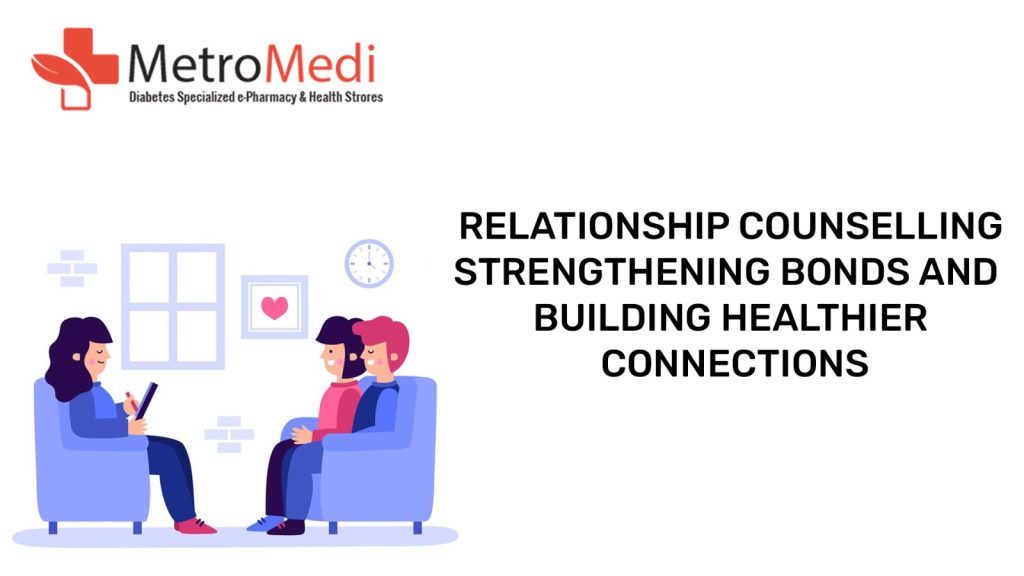
In the fast-paced world we live in, maintaining strong, healthy relationships can be challenging. Relationship counselling provides couples and individuals with tools and techniques to navigate conflict, improve communication, and nurture emotional intimacy. In this blog, we’ll explore the benefits of relationship counselling, common issues it can address, and how seeking professional help can lead to long-lasting change.
1. What Is Relationship Counselling?
Relationship counselling, also known as couples therapy, is a type of therapy designed to help couples and individuals resolve conflicts and improve their relationships. Whether you’re dealing with minor disagreements or facing significant challenges, a counsellor can guide you through these issues in a structured and supportive environment.
2. Who Can Benefit from Relationship Counselling?
Relationship counselling isn’t just for couples in crisis. It can benefit a wide range of people:
- Couples in long-term relationships facing communication breakdowns, intimacy issues, or growing emotional distance.
- Newlyweds or engaged couples who want to build a strong foundation for marriage.
- Families who need help navigating conflicts or dealing with major life transitions.
- Individuals who want to improve their relationship patterns and emotional health.
3. Common Issues Addressed in Relationship Counselling
Some common problems that can be addressed in relationship counselling include:
- Communication problems: Misunderstandings and a lack of open communication can create tension and resentment.
- Conflict resolution: Every couple experiences disagreements, but counselling helps resolve conflicts in a productive, healthy way.
- Intimacy issues: Emotional or physical intimacy challenges can lead to feelings of isolation or dissatisfaction.
- Trust issues: Whether due to infidelity or other breaches of trust, counselling can help rebuild the foundation of trust.
- Life changes: Major events such as having children, moving, or career shifts can affect a relationship’s dynamic.
- Family and cultural differences: Navigating expectations from extended families or cultural differences can be a challenge that counselling can help resolve.
4. The Role of Communication in a Healthy Relationship
Effective communication is at the core of any successful relationship. Relationship counsellors often help couples enhance their listening and speaking skills to express their needs and emotions in a clear, non-judgmental manner. Active listening and empathy are key components of these sessions.
5. How Relationship Counselling Works
In a typical session, a counsellor works with couples or individuals to:
- Identify underlying issues: A therapist helps uncover the root causes of ongoing problems.
- Set goals: Couples set realistic goals to improve their relationship, whether that involves improving communication or resolving deep-seated conflicts.
- Provide tools: Therapists offer strategies to help couples better manage disagreements and deepen their emotional connection.
6. Why Seeking Counselling Early Is Important
Waiting until your relationship is in crisis mode to seek counselling can make it harder to resolve issues. Seeking help early, even when problems seem small, can prevent larger conflicts from developing. Early intervention also helps couples develop healthy coping strategies that can strengthen their relationship over time.
7. Online Relationship Counselling: A Convenient Option
With the rise of online counselling services, couples now have the flexibility to seek professional help from the comfort of their own homes. Online relationship counselling offers the same benefits as in-person therapy, including expert guidance and personalized strategies for relationship improvement.
8. The Importance of Relationship Counselling for Long-Term Success
Counselling is not a quick fix; it’s an ongoing process that equips couples with lifelong skills. Whether you attend just a few sessions or commit to long-term counselling, the benefits can have a lasting impact on your relationship. Many couples find that counselling helps them grow together, build resilience, and navigate future challenges with confidence.
9. How to Choose the Right Relationship Counsellor
Finding the right counsellor is crucial for a positive experience. Here are a few tips:
- Look for credentials: Ensure the counsellor is licensed and experienced in relationship or couple’s therapy.
- Check for compatibility: It’s important to feel comfortable with your therapist, so find someone who aligns with your values and approach.
- Consider specialization: Some counsellors specialize in certain areas like marriage counselling, LGBTQ+ relationships, or family therapy.
10. Conclusion: A Healthier Relationship Starts with Counselling
Whether you’re dealing with minor tensions or deep-rooted issues, relationship counselling can help you create healthier, more fulfilling relationships. By seeking help early and working with a trained professional, you and your partner can gain the skills needed to thrive in your relationship.
